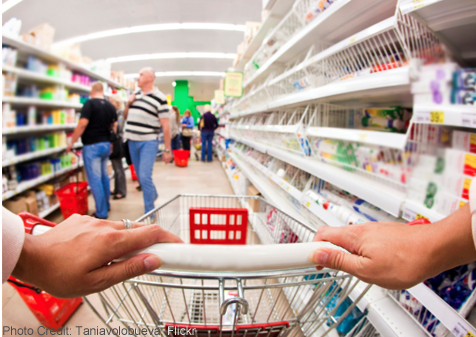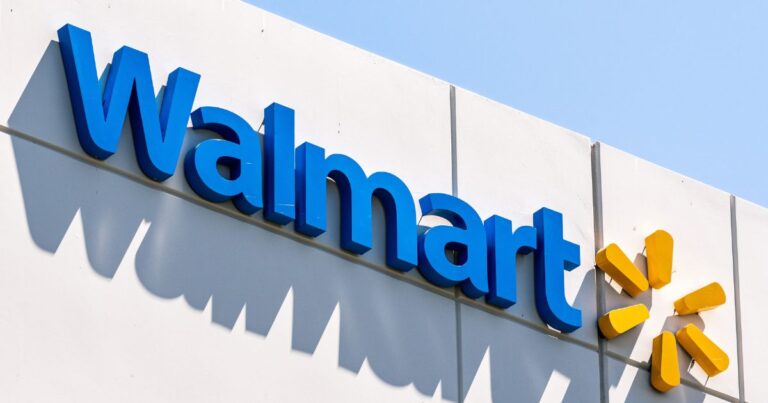 When it comes to moving our economy away from unsafe chemicals, perhaps no one has more power than major retailers to push suppliers and manufacturers, and ultimately the chemical industry, toward more responsible practices.
When it comes to moving our economy away from unsafe chemicals, perhaps no one has more power than major retailers to push suppliers and manufacturers, and ultimately the chemical industry, toward more responsible practices.
At Safer Chemicals, Healthy Families, our coalition of 450 business, labour, environment and public health groups had spent years working to update our outdated and broken federal rules. We were frustrated by a chemical lobby that was intent on blocking real reform. We felt a shared moral urgency to reduce suffering, caused by chronic illnesses and other conditions that are linked to chemical exposure.
That is why we launched our “Mind the Store” campaign and called on the nation’s top ten retailers to develop comprehensive chemicals policies to phase out the worst of the worst chemicals, identifying a list of them as the Hazardous 100+. Since we launched the campaign, our supporters wrote to and petitioned top retailers, held dozens of events at stores, tested retailers’ products for dangerous chemicals and invited them to work with us.
Retailers listen to their customers, and are vulnerable to public outcry, but, of course, they can’t ignore the bottom line. Late last year, a study from the UN confirmed what we were witnessing. It found that companies that do not actively manage their use of chemicals face a tremendous downside risk, including millions in fines, reputational damage, recall costs and loss in customer loyalty.
The report has bolstered the case for the nation’s biggest retailers to work with their suppliers to adopt comprehensive programmes to identify, eliminate, and safely substitute dangerous chemicals.
Who are the leaders? The market leaders see this, and are leading the industry. Walmart and Target, which essentially started competing with one another in recent years in a race to safer chemicals, have both adopted comprehensive approaches to chemicals management. As they moved ahead, we kept the pressure on other top retailers, particularly Walgreens, the nation’s largest pharmacy chain. After generating over 135,000 emails from our supporters around the nation, just recently the chain let us know it had heard us, and was developing its own Chemical Sustainability Program. We are enthused, and thank them for listening. We are hopeful they will develop a strong chemicals policy that will promote greater disclosure, while avoiding hazardous chemicals in the products they sell.
Lumber Liquidators in chemical crisis. No cautionary tale in supply chain management this year stands out more than Lumber Liquidators, whose stock price has plunged by more than 60% and is now subject to a Department of Justice criminal investigation, after the CBS programme “60 Minutes” aired a report in March. The report said the flooring giant was selling laminate, sourced from China, that exceeded the California Air Resources Board (CARB) safety standard for formaldehyde, even as the flooring was labelled as compliant with the CARB rule.
And even as we urge comprehensive approaches, there has also been some great recent victories for consumers in wrestling with specific chemicals on our Hazardous 100+ list.
Progress on toxic flame retardants. Late last year, we began engaging with and surveying major furniture retailers about whether they were ready to commit to phasing out toxic flame retardant chemicals that have been in nearly every piece of upholstered furniture sold for years. One stepped forward – Ashley, the leading retailer and manufacturer in the nation. While the company was planning a phase-out, it would not commit to a public timeframe. In response, we channelled the energy of thousands of concerned families from coast-to-coast, and just a few weeks later Ashley made it official and committed to a public timeframe for eliminating flame retardants in furniture.
Ashley’s leadership put pressure on other retailers to sell safer products, and within days after that, a social media campaign directed at other furniture retailers resulted in Ethan-Allen announcing on Twitter that it was matching the Ashley policy.
Progress on toxic phthalates. Similarly, our partners at the Ecology Center began testing vinyl flooring sold at national home improvement retailers for unsafe phthalates (months before the Lumber Liquidators story broke). Again, one retailer stepped forward ready to lead. The world’s largest home improvement retailer Home Depot expressed an interest in working with us. By early spring, the company was ready to announce it was phasing out phthalates from virgin vinyl flooring by the end of 2015. That, in turn, put pressure on other industry players to follow suit, and just days later, Lowe’s announced it would match Home Depot’s commitment. Lumber Liquidators has also asked suppliers to move to alternatives.
Everyone wins from this important work. Consumers get safer products, and retailers enjoy better customer confidence while reducing risk. There are far too many hazardous chemicals in products on store shelves. We’re making progress, but there’s much more work to do.
The views expressed in contributed articles are those of the expert authors and are not necessarily shared by Chemical Watch. (Note: a similar version of this article originally appeared in Chemical Watch. It is republished with permission. Chemical Watch uses British grammar style.)




